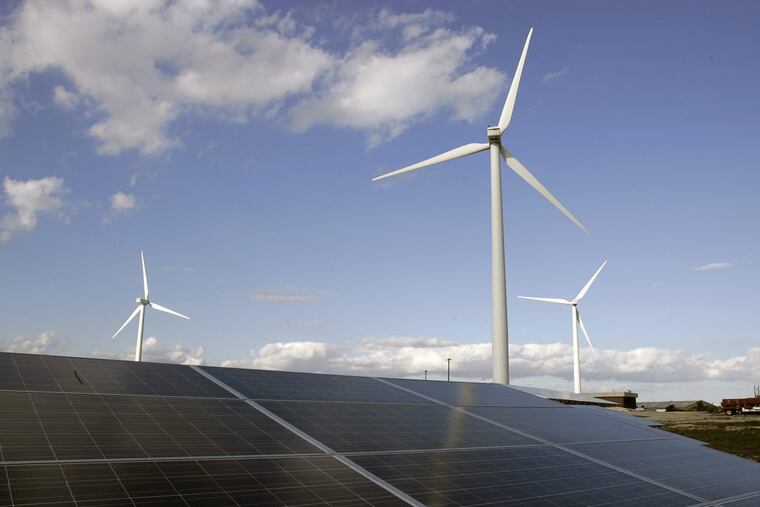Reversing Christie, Murphy administration rejoins greenhouse gas group
The regional initiative is a multi-state effort to reduce greenhouse gas emissions from the power sector to below 2005 levels, with a goal of even bigger reductions by 2030.

Well, that didn't take long.
Two weeks into his administration, Gov. Murphy on Monday signed an executive order for New Jersey to rejoin the Regional Greenhouse Gas Initiative, reversing a decision by former Gov. Chris Christie that has rankled environmentalists for seven years.
The regional initiative is a multi-state effort to reduce greenhouse gas emissions. Connecticut, Delaware, Maine, Maryland, Massachusetts, New Hampshire, New York, Rhode Island and Vermont are joined together to reduce carbon dioxide emissions from the power sector to below 2005 levels, with a goal of even bigger reductions by 2030.
The initiative started in 2005 and New Jersey became a member. But Christie pulled the Garden State out in 2012, calling the effort "gimmicky" — and several attempts by the legislature to rejoin failed.
The initiative caps the amount of carbon a fossil fuel power plant can emit, otherwise facing a penalty.
"New Jersey has not been a partner to our neighbor states in advancing the goal of reducing greenhouse gas emissions since pulling out of RGGI," Murphy said, adding that the state, is taking "the first step toward restoring our place as a leader in the green economy."
Murphy said New Jersey lost out on $279 million in revenue as a result of leaving the initiative.
It will take at least a month for the state to set rules and formally reenter the pact.
Doug O'Malley, director of Environment New Jersey, praised the move.
"RGGI is a light of climate action in the darkness of climate rollbacks of the Trump era," O'Malley said. "This is a slam dunk on climate action by Gov. Murphy. While RGGI is not a silver bullet to reduce all our carbon emissions, it's an incredible first step to reduce pollution from our fossil fuel plants and move us to a clean, renewable energy economy."
Meanwhile, an energy and environment advisory committee for Murphy is recommending that the state aim to produce 1,100 megawatts of electrical power through offshore wind farms — enough to power roughly 170,000 homes. This would help the administration achieve its goal of using 100 percent "clean energy" by 2050.
However, such a large scale wind operation could take years to get off the ground with many regulatory and policy hurdles to clear.
The committee also recommends stabilizing the state's solar market by using innovative financing to drive projects. It suggests tapping into a $70 million settlement with Volkswagen over diesel emissions claims to pay for electric vehicles for NJ Transit.